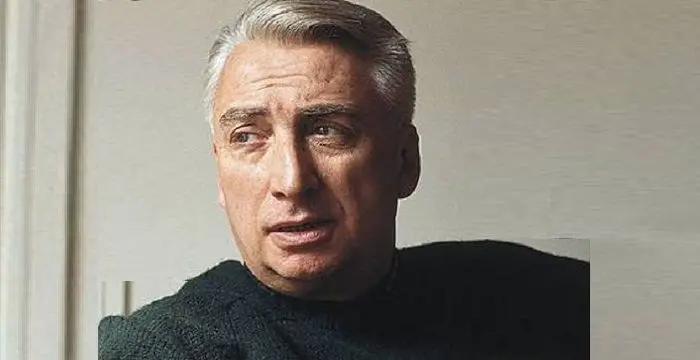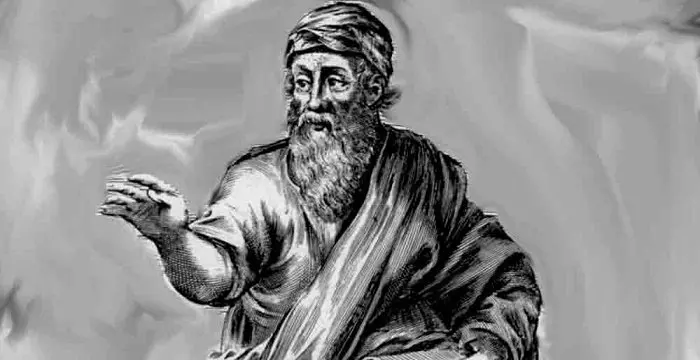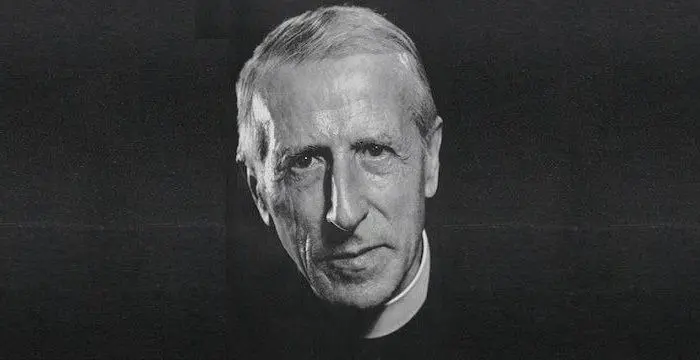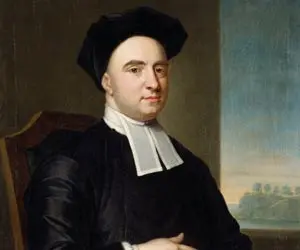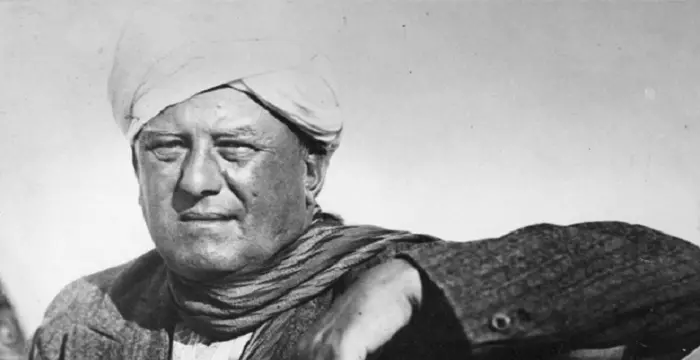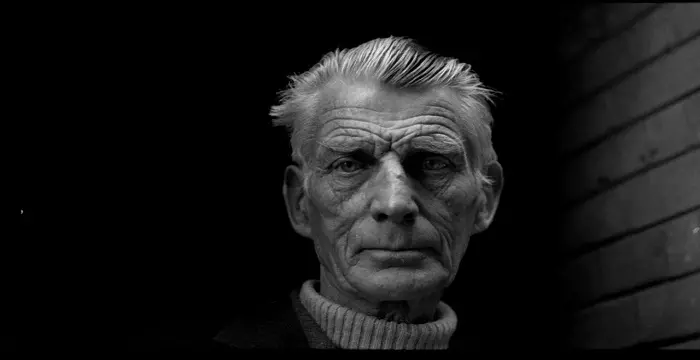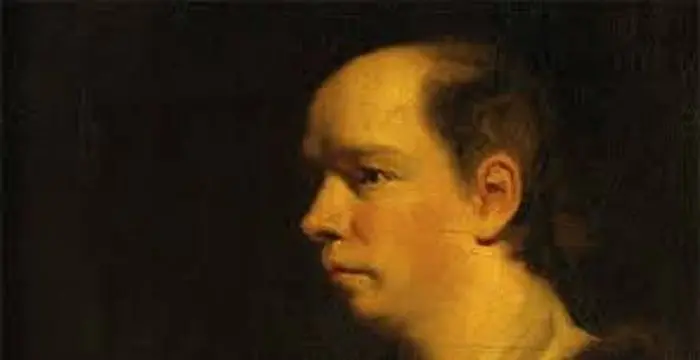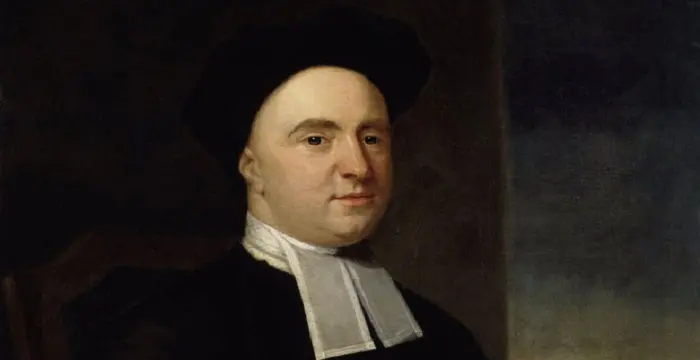
George Berkeley - Philosophers, Birthday and Facts
George Berkeley's Personal Details
George Berkeley was a philosopher, primarily known for his empiricist and idealistic philosophy
| Information | Detail |
|---|---|
| Birthday | March 12, 1685 |
| Died on | January 14, 1753 |
| Nationality | Irish, British |
| Famous | Humanitarian, Trinity College, Dublin, Intellectuals & Academics, Philosophers, Philosophers |
| Spouses | Anne Forster |
| Universities |
|
| Notable Alumnis |
|
| Birth Place | County Kilkenny, Ireland |
| Born Country | Ireland |
| Gender | Male |
| Father | William Berkeley |
| Sun Sign | Pisces |
| Born in | County Kilkenny, Ireland |
| Famous as | philosopher |
| Died at Age | 67 |
// Famous Philosophers
Roland Barthes
Roland Barthes was a French literary theorist, critic and semiotician. This biography profiles his childhood, life, works, achievements and timeline.
Pythagoras
Pythagoras of Samos was a Greek mathematician and philosopher. Read on to learn more about Pythagoras’s profile, childhood, life and timeline.
Pierre Teilhard de Chardin
Pierre Teilhard de Chardin was a famous French philosopher and a priest who was also known for his controversial writings. Read more about the life and works of this philosopher in the following article.
George Berkeley's photo
Who is George Berkeley?
George Berkeley, an Anglo-Irish Anglican bishop, was one of the great philosophers of the modern era. He is known for his empiricist and idealistic philosophy. Idealism is the belief that everything that exists depends upon the mind for its existence and that reality consists of whatsoever is perceived by the senses. He is regarded as one of the three most influential British Empiricists along with John Locke and David Hume. Berkeley is the major contributor to the theory of ‘Subjective Idealism’ that claims that that the only things that exist are the minds and contents perceived by the minds. The theory is associated with ‘Immaterialism’, an assumption that material things do not exist. He was of the belief that all physical objects ‘exist’ because they are perceived to be in the minds of the individuals. He felt that perception could be the actual perception of an entity that an individual has or the possible perception if the individual perceived something in a particular manner. As a metaphysicist, he criticized the idea of materialism, and focused on the study of the relationship between mind and matter, the nature of reality, fact and value, etc. He produced many texts on philosophy, the major one being ‘A Treatise Concerning the Principles of Human Knowledge’.
// Famous Intellectuals & Academics
Bertil Gotthard Ohlin
Bertil Gotthard Ohlin was a famous Swedish economist. This biography profiles his childhood, family life & achievements.
Emily Greene Balch
Emily Greene Balch was an American economist, sociologist and pacifist who won the 1946 Nobel Peace Prize. This biography of Emily Greene Balch provides detailed information about her childhood, life, achievements, works & timeline.
Martin Buber
One of the greatest philosophers to have ever walked on earth, Martin Buber contributions to philosophy is a long-standing one. Explore all about his profile, childhood, life and timeline here.
Childhood & Early Life
He was born as the eldest son of William Berkeley, an Englishman, in Ireland. He considered himself Irish in spite of his father’s English roots.
He enrolled at Kilkenny College in 1696. Later on he attended Trinity College, Dublin and received his B.A. in 1704. His association with the Trinity lasted till 1724, though not all the years were spent in residence.
He completed his master’s degree in 1707 and became a junior fellow. He was ordained as an Anglican priest in 1710. After the completion of his doctorate, he became a senior fellow in 1717.
Career
He started publishing his works while at Trinity College. His first work on philosophy, ‘An Essay towards a New Theory of Vision’ was published in 1709. He discussed topics like visual distance, magnitude, issues of sight and touch, etc. in the book which created controversy at that time.
In 1710, he published ‘A Treatise concerning the Principles of Human Knowledge’. In this book he attempted to refute claims about the nature of human perception as made by John Locke.
His next book, ‘Passive Obedience’ which dealt with issues of moral and political philosophy was out in 1712.
The much celebrated ‘Three Dialogues between Hylas and Philonous’ was published in 1713. He discussed the concepts of perceptual relativity and observer’s perceptions in this work.
He published his essay on motion, ‘De Motu’ in 1721 in which he rejected the concepts of absolute space, time and motion as propounded by the scientist Sir Isaac Newton.
He earned his doctorate in divinity in 1721 by taking Holy Orders in the Church of Ireland, and lectured in Divinity and Hebrew at Trinity College Dublin. Later that year, he was made the Dean of Dromore and in 1724, the Dean of Derry.
He was appointed as the Bishop of Cloyne in Ireland in 1734, a position which he held till his retirement in 1752.
In 1744, he wrote a book on the virtues of pine tar and the various uses to which it could be put. The book was titled ‘Siris: a Chain of Philosophical Reflexions and Inquiries Concerning the Virtues of Tar Water’ and was followed by ‘Further Thoughts on Tar-water’ in 1752.
Major Works
His first major work was ‘Three Dialogues between Hylas and Philonous’ (1713) that discussed the concepts of perceptual relativity, conceivability and phenomenalism. In the book, his metaphysical views are expressed in the form of a dialogue between two characters, Hylas and Philonous.
His essay on the nature of motion, titled ‘De Motu’ (1721) rejects many of Sir Isaac Newton’s notions of space, time and motion. He argued that motion should not be considered as an abstraction separate from time and space.
‘Alciphron’ was a philosophical dialogue published in 1732 which is presented in the form of dialogue between four characters, who depict the free-thinkers Alciphron, Lysicles, Euphranor and Crito.
His book ‘Siris: a Chain of Philosophical Reflexions and Inquiries Concerning the Virtues of Tar Water’ (1744) was among the last of his major works. He discussed the various medicinal uses of tar water, and commented on a variety of seemingly unrelated topics such as science, philosophy and theology.
Personal Life
In 1728, he married Anne Forster, the daughter of the Chief Justice of the Irish Common Pleas. The couple had seven children out of whom only three survived childhood.
He took active part in humanitarian work to help abandoned children in London. He was one of the original governors of the Foundling hospital, established by Royal Charter in 1739.
He was a cheerful, friendly and kind man who was well loved by everyone who knew him. He retired in 1752 and went to live with his son.
He died at the age of 67.
Trivia
The city of Berkeley in California is named in his honour.
He is credited to have influenced many modern philosophers, especially Immanuel Kant and David Hume.
// Famous Philosophers
Martin Buber
One of the greatest philosophers to have ever walked on earth, Martin Buber contributions to philosophy is a long-standing one. Explore all about his profile, childhood, life and timeline here.
Lao Tzu (Laozi)
Lao Tzu was a legendary Chinese philosopher who wrote the important “Daodejing”. This biography profiles his childhood, life, career, achievements and timeline.
Alan Watts
Alan Watts was a famous British philosopher known for his Zen teachings and interpretations of Eastern philosophy. Read more about this great philosopher in the following article.
George Berkeley biography timelines
- // 12th Mar 1685He was born as the eldest son of William Berkeley, an Englishman, in Ireland. He considered himself Irish in spite of his father’s English roots.
- // 1709He started publishing his works while at Trinity College. His first work on philosophy, ‘An Essay towards a New Theory of Vision’ was published in 1709. He discussed topics like visual distance, magnitude, issues of sight and touch, etc. in the book which created controversy at that time.
- // 1710In 1710, he published ‘A Treatise concerning the Principles of Human Knowledge’. In this book he attempted to refute claims about the nature of human perception as made by John Locke.
- // 1712His next book, ‘Passive Obedience’ which dealt with issues of moral and political philosophy was out in 1712.
- // 1713The much celebrated ‘Three Dialogues between Hylas and Philonous’ was published in 1713. He discussed the concepts of perceptual relativity and observer’s perceptions in this work.
- // 1721He published his essay on motion, ‘De Motu’ in 1721 in which he rejected the concepts of absolute space, time and motion as propounded by the scientist Sir Isaac Newton.
- // 1728In 1728, he married Anne Forster, the daughter of the Chief Justice of the Irish Common Pleas. The couple had seven children out of whom only three survived childhood.
- // 1734 To 1752He was appointed as the Bishop of Cloyne in Ireland in 1734, a position which he held till his retirement in 1752.
- // 1744In 1744, he wrote a book on the virtues of pine tar and the various uses to which it could be put. The book was titled ‘Siris: a Chain of Philosophical Reflexions and Inquiries Concerning the Virtues of Tar Water’ and was followed by ‘Further Thoughts on Tar-water’ in 1752.
- // 14th Jan 1753He died at the age of 67.
// Famous Trinity College, Dublin
Leo Varadkar
Cam Leo Varadkar is the current Taoiseach—the Prime Minister—of the Republic of Ireland. Check out this biography to know about his childhood, family life, achievements and other facts about his life.
Katie McGrath
Katie McGrath is an Irish actress best recognized for her role in the series ‘Merlin.’ Check out this biography to know about her childhood, family life, achievements and fun facts about her.
Aleister Crowley
Aleister Crowley was an occultist and ceremonial magician who founded the ethical philosophy of Thelema. This biography of Aleister Crowley provides detailed information about his childhood, life, achievements, works & timeline.
Samuel Beckett
Samuel Beckett was an Irish playwright, novelist, theatre director and poet. This biography profiles his childhood, life, works, achievements and timeline
Oliver Goldsmith
Oliver Goldsmith was an Anglo-Irish essayist and novelist of the 18th century. Go through this biography to know in details about his life, profile, childhood and timeline.
Aisling Bea
Aisling Bea is an Irish actress, writer, and stand-up comedian. Check out this biography to know about her birthday, childhood, family life, achievements and fun facts about her.
George Berkeley's FAQ
What is George Berkeley birthday?
George Berkeley was born at 1685-03-12
When was George Berkeley died?
George Berkeley was died at 1753-01-14
Where was George Berkeley died?
George Berkeley was died in Oxford, Great Britain
Which age was George Berkeley died?
George Berkeley was died at age 67
Where is George Berkeley's birth place?
George Berkeley was born in County Kilkenny, Ireland
What is George Berkeley nationalities?
George Berkeley's nationalities is Irish, British
Who is George Berkeley spouses?
George Berkeley's spouses is Anne Forster
What was George Berkeley universities?
George Berkeley studied at Trinity College Dublin, Trinity College, Dublin, Kilkenny College
What was George Berkeley notable alumnis?
George Berkeley's notable alumnis is Trinity College Dublin
Who is George Berkeley's father?
George Berkeley's father is William Berkeley
What is George Berkeley's sun sign?
George Berkeley is Pisces
How famous is George Berkeley?
George Berkeley is famouse as philosopher
